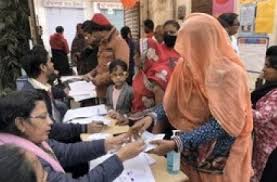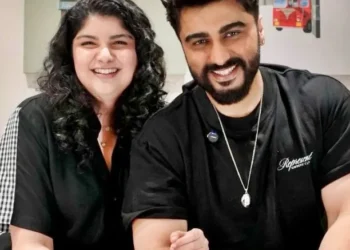As the voting for the bypolls concluded on Wednesday across Rajasthan in seven Assembly seats, Khinvsar recorded the highest voting percentage at 75.62 while Dausa witnessed the lowest voting at 62.1 per cent, the state’s Chief Electoral Officer (CEO) said.
The Jat-dominated Khinsvar seat witnessed a triangular contest with the BJP’s Revant Ram Danga up against the Congress’ Ratan Chaudhary and the Rashtriya Loktantrik Party’s (RLP) Kanika Chaudhary, the wife of party Chief Hanuman Beniwal.
Peaceful and fair voting was recorded in the bypolls across Rajasthan in seven Assembly constituencies — Ramgarh, Dausa, Chorasi, Jhunjhunu, Khinvsar, Deoli-Uniara, and Salumber.
All voters, including different sections of society, voted in large numbers at a total of 1,915 polling stations.
CEO Naveen Mahajan said that the expected voting percentage at the time of closing of polls in the seven Assembly constituencies was 69.29 per cent.
The final (end of poll) data of voting percentage will be available only after scrutiny of documents on Thursday.
He added that even after 6 p.m., there were queues of voters at some polling stations.
Voters started arriving at polling stations in urban and rural areas to exercise their franchise from 7 a.m.
The counting of votes will be held on November 23 from 8 a.m.
However, the voter turnout in 2023 Assembly polls in these seven seats was 74.62 per cent, the CEO said.
Based on the reports received so far from all the returning officers, the constituency-wise voting percentage of the Assembly in Khinvsar was 75.62 per cent, 75.27 per cent in Ramgarh, 74.1 per cent in Chorasi, 67.01 per cent in Salumber, 65.8 per cent in Jhunjhunu, 65.1 per cent in Deoli-Uniara and 62.1 per cent in Dausa.
The CEO said the concept of a live webcast and eco-friendly ‘green and clean’ polling booth was realised for the first time even from outside the polling station.
Eco-friendly selfie booths were also installed at the polling stations.
CEO Mahajan said that out of 1,915 polling booths in seven Assembly constituencies, live webcasting of the voting process was done at 1,170.
In many polling premises, CCTV cameras were installed outside the polling booth and the queue of voters, and the law and order situation was monitored through live streaming.
The CEO added that after the voting, all 1,915 polling parties have reached the storage centres safely along with EVM machines.
After transporting and storing EVM machines, the Election Commission’s guidelines and standard operating procedures are being followed for their security.
He said that one ballot unit, one control unit, and 13 VVPATs were replaced due to technical errors during voting in all seven Assembly constituencies.
According to the Chief Electoral Officer, keeping in mind the convenience of voters at all polling stations, arrangements were made, including ramps, drinking water, shade, wheelchairs, and vehicles for differently-abled voters.
Special polling booths were set up during the bye-elections to encourage the participation of youth, women, and differently-abled people, which were operated by them.
Along with this, young voters also took selfies and uploaded them on social media.
CEO Mahajan said that home voting facility was provided for senior citizens aged 85 years and above and voters with more than 40 per cent disability.
More than 99 per cent of voting took place through home voting in the seven Assembly constituencies across the state.
A total of 3,193 voters applied for home voting, of which 37 died by the time of voting.
During the period from November 4-10, a total of 3,127 voters exercised their franchise from home. Only 29 voters could not vote due to absence.





















